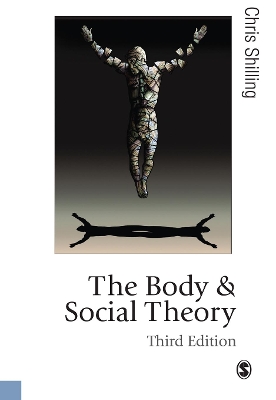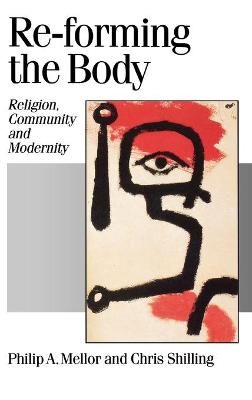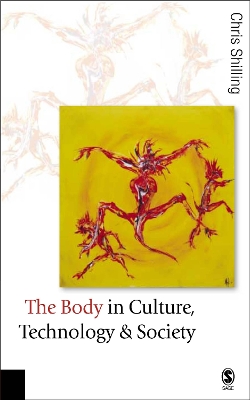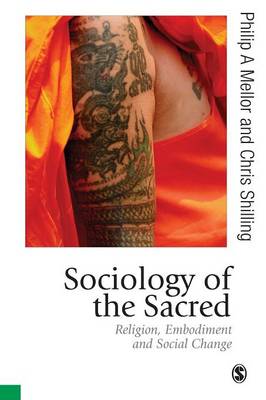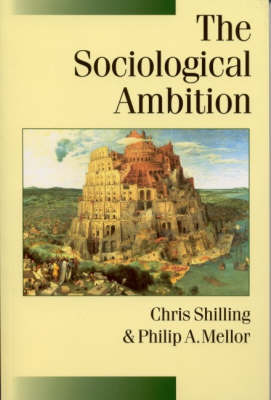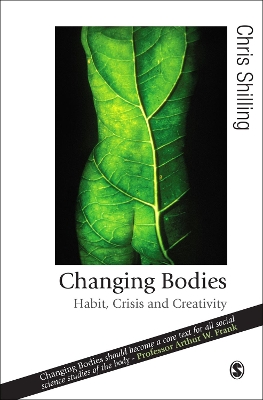Published in association with Theory, Culture & Society
2 primary works • 7 total works
Book 22
- Sarah Nettleton, University of York
"Lucidly argued and accessibly written, this book avoids the pitfalls of either too much naturalism or too much social constructivism. It is a book with something for everyone, from the classics in social theory on the body to contemporary bodily phenomena like genetics, body modification, and cultural anxieties about death."
- Kathy Davis, Utrecht University
Unrivalled in its clarity and coverage, this sparkling new edition of Chris Shilling′s classic text is a masterful account of the emergence and development of body matters in sociology and related disciplines.
A timely, well reasoned response to current concerns and controversies across the globe, it provides chapter-by-chapter coverage of the major theories, approaches and studies conducted in the field. Each chapter has been revised and updated, with new discussions of ′actor-network theory′, bodywork, pragmatism, the global resurgence of religious identities, ′new genetics′, biological citizenship, neuroscience, and figurations of the living and dead.
Packed full of critical analysis and relevant empirical studies the book engages with the major classical and contemporary theories within body studies including the: naturalistic, interactionist, constructionist, feminist, structuralist, phenomenological, and realist.
Original, logical and indispensable this is a must-have title for students and researchers engaged with the study of the body.
Book 50
Through an analysis of successive re-formations of the body, this innovative and penetrating book constructs a fascinating and wide-ranging account of how the creation and evolution of different patterns of human community are intimately related to the somatic experience of the sacred.
The book places the relationship between the embodiment and the sacred at the crux of social theory, and casts a fresh light on the emergence and transformation of modernity. It critically examines the thesis that the rational projects of modern embodiment have ′died and gone to cyberspace′, and suggests that we are witnessing the rise of a virulent, effervescent form of the sacred which is changing how people ′see′ and ′keep in touch′ with the world around them.
′This is Shilling at his creative best…these are seminal observations of the classical theories drawn together as never before. Moreover, as a framework [this monograph] provides a genuinely new and fertile way of reconsidering not just classical sociology but contemporary
forms as well′ - Sport, Education & Society
′This is a comprehensive, theoretically sophisticated, and ambitious treatise on the body that draws from, and applies, both classical and contemporary sociological theory in a manner that is innovative and thought-provoking. This book is engaging and thought-provoking, but Shilling′s greatest achievement is his ability to illustrate the importance and continued relevance of classical and contemporary sociological theory to real world concerns. It is a book worthy of widespread attention. It reinvigorated my interest in the sociological classics and contained countless nuggets of interesting information that led me to conclude that it would be a worthy book to recommend to a broad sociological audience′ - Teaching Sociology
′Shilling′s book (like his earlier The Body and Social Theory) is crucial reading…a further valuable contribution in a field where he has provided so much′ - Theory & Psychology
′This is an impressive book by one of the leading social theorists working in the field of body studies. It provides a critical summation of theoretical and substantive work in the field to date, while also presenting a powerful argument for a corporeal realism in which the body is both generative of the emergent properties of social structure and a location of their effects. Its scope and originality make it a key point of reference for students and academics in body studies and in the social and cultural sciences more generally′ - Ian Burkitt, Reader in Social Science, University of Bradford
′Chris Shilling is as always a lucid guide through the dense thickets of the "sociology of the body", and his chapters on the fields of work, sport, eating, music and technology brilliantly show how abstract theoretical debates relate to the real world of people′s lives′ - Professor Stephen Mennell, University College Dublin
′What I find very useful and without any doubt valuable, not only in Shilling′s The Body in Culture, Technology and Society but in his work in general, is the breadth and profoundness of his discussion about the body…the style Shilling maintains is crucial for further development of the sociology of the body as a discipline, for it provides us with a rich intellectual environment about the body′ - Sociology
′For any colleague wanting to have a clear idea of how studies of the body can be empirically grounded as well as theoretically ′rich′, Chris Shilling′s The Body in Culture, Technology and Society , is the book to read. To my mind it offers the best account thus far of not only how social action is embodied and must be recognised as such but also of how social structures condition and shape embodied subjects in a variety of social arenas... This is wonderful insightful ′stuff′ – the ideas and intricate thoughts of a scholar such as Shilling who has been immersed in thinking about the complexities of the body in society as well as sociology for a number of years′ - Sociology of Health and Illness
This is a milestone in the sociology of the body. The book offers the most comprehensive overview of the field to date and an innovative framework for the analysis of embodiment. It is founded on a revised view of the relation of classical works to the body. It argues that the body should be read as a multi-dimensional medium for the constitution of society. Upon this foundation, the author constructs a series of analyses of the body and the economy, culture, sociality, work, sport, music, food and technology.
"About time! Two key experts in the field remind us of the significance and power of religion as bio-political and bio-economic."
- Beverley Skeggs, Goldsmiths, University of London
"A welcome addition to a continuing body of work by two distinguished theorists of religion."
- Grace Davie, University of Exeter
- Keith Tester, University of Hull
"This book is ambitious, refreshing and rewarding. It offers the best available analysis of the complex interlacing of the sacred, religion, secularization and embodied experience."
- James A. Beckford, University of Warwick
- How the bodily capacities help religions adapt to social change but also facilitate their internal transformation
- That the `sacred' includes a diverse range of phenomena, with variable implications for questions of social order and change
- How proponents of a `post-secular' age have failed to grasp the ways in which sacralization can advance secularization
- Why the sociology of the sacred needs to be a key part of attempts to make sense of the nature and directionality of social change in global modernity today.
This book is key reading for the sociology of religion, the body and modern culture.
`For all social scientists who are fed up with corporate-style textbooks, which appeal to the lowest common denominator The Sociological Ambition must come as a relief. Shilling and Mellor have written an account of their discipline but they have done so with a multi-purpose task in mind′ - Irish Journal of Sociology
In a comprehensive reassessment of the field, Chris Shilling and Philip A Mellor examine the various attempts that have been made to reconstruct sociology over the last century, arguing that classical and contemporary social theories must be studied in relation to the ambition that first shaped and established the discipline.
The authors begin by situating sociology in its historical, philosophical and theological contexts; examining how the founders of the discipline developed competing analyses of the processes elementary to social and moral life through their unique contributions.
The result is a landmark work in recent sociological study. Accomplished and erudite, this book will be required reading for students of sociology, social theory, religious studies and cultural studies.
Based on a novel theory of action it surveys the terrain by arguing that human identity, social relationships and moral figurations develop as a result of people living in and seeking to reach beyond the limits of their bodily being. From this starting point the author undertakes a series of studies on sport, transgenderism, migration, illness, survival and belief which illuminate the relationship between bodily change and action.
The book provides an unrivalled survey of theory and empirical research and explores the hitherto neglected tradition of American ′body studies′. Wide in scope, systematic and incisive the book represents a landmark addition to the field of studies in body and society.
